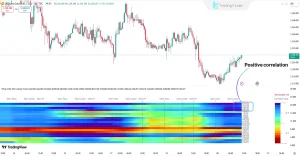
The concept of market efficiency refers to a market in which prices accurately reflect all relevant financial information about an asset or security. When markets are efficient, buyers and sellers have an equal opportunity to profit from transactions while minimizing transaction costs.
Efficient markets are popular among traders and investors alike. Despite this, some have doubts about the market efficiency hypothesis.
Definition
Understanding Market Efficiency is a term used to describe the way in which markets incorporate information. This information can include financial news, research, economic, social, and political factors, rumors, and other variables that influence the value of an asset or security.
A market is efficient when current prices represent all essential financial information about an underlying asset or security. This provides buyers and sellers equal access to precise, comprehensive, and accurate data that minimizes transaction costs, limits arbitrage opportunities, and prevents above-market gains.
The concept is closely related to American economist Eugene Fama’s efficient market hypothesis, which was introduced in 1970.
There are three forms of efficiency. The weak form is a market in which past pricing details are insufficient to assist investors in determining correct future trading prices. The semi-strong form is a market in which prices fully reflect all publicly available information and past pricing details.
Types
Understanding Market Efficiency involves understanding how well current prices reflect all available information about the actual value of the securities. As the quality and amount of information increases, efficient markets eliminate opportunities for arbitrage and above-market returns.
There are three different types of market efficiency. These are weak form efficiency, semi-strong form efficiency and strong form efficiency.
In the weak form, prices reflect only the past or historical price of securities. This means that investors can’t profit above the market by trading on private information, because that information will already be factored into the security’s price.
In the semi-strong form, prices fully and fairly reflect both public and private information. This means that investors can’t earn abnormal returns by using fundamental and technical analysis, because that information is already incorporated into the security’s price.
Functions
Market efficiency is the ability of a market to allocate resources optimally. This is achieved through perfect information flowing between buyers and sellers, enabling the market to determine the “right price” for an item.
The degree of efficiency is dependent on a range of factors including the type of market, its availability of information and the number of participants in the market. It is also affected by the type of transactions.
For example, a large number of investors makes the stock market more efficient because any anomalies are quickly identified and the price adjusts accordingly.
However, it is important to understand that market efficiency is a complex concept that has many different definitions and assumptions about how prices reflect available information. For instance, a strict definition that assumes that all information is reflected in market prices would mean that even investors with precise inside information will be unable to beat the market.
Applications
Understanding Market Efficiency is a financial tool that measures the ability of markets to incorporate information and provide maximum opportunities for buyers and sellers without increasing transaction costs. It is an important concept in securities trading, including derivatives valuation and capital asset pricing.
A market is efficient when it accurately reflects all information available about an asset, security or portfolio. This includes information about the asset itself, as well as other financial news, research, economic, political and social variables that may affect its value.
An efficient market provides investors with equal access to accurate and comprehensive asset-related information, enabling them to profit in a liquid and highly competitive market while minimizing transaction costs, arbitrage opportunities, and above-market gains.
Inefficient markets are characterized by prices that are more like a casino, where traders buy or sell stocks based on how other traders will react to new information. For example, if Company ABC announces a takeover, the stock price of Grow Co. could jump from $10 to $20, reflecting traders buying the shares not because they believe Grow is fairly valued at $10 but because other traders think it will trade for $21 or more.








